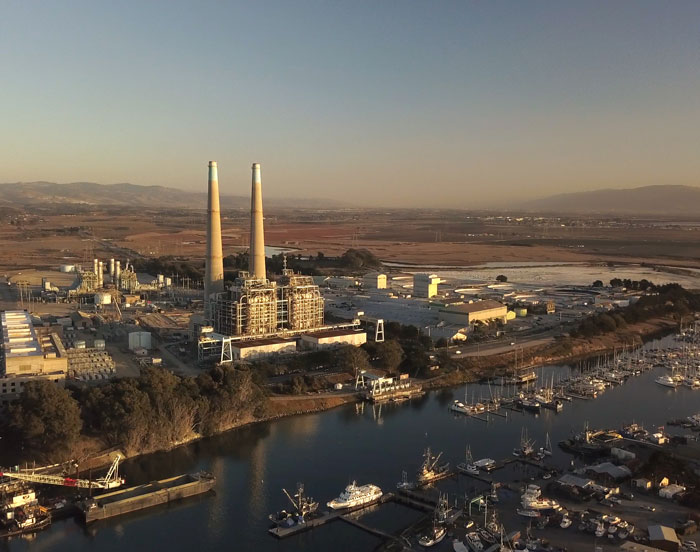Team Applies Power of AI To Forecast Energy Supply, Demand
By: Kim Horner | June 2, 2021

The increasing use of renewable, fluctuating power sources, such as wind and solar energy, has made it more challenging than ever to forecast electricity prices.
In partnership with Vistra, one of the largest competitive power generators in the U.S., University of Texas at Dallas researchers are using artificial intelligence (AI) techniques to help the Irving-based company make more precise pricing projections.
The research for Vistra is the inaugural project of the University’s Center for Applied AI and Machine Learning (CAIML) in the Erik Jonsson School of Engineering and Computer Science. The center, established in 2019 to work with industry partners to apply advanced research in AI and machine learning to solve practical problems, will be located in the Richardson Innovation Quarter.
In machine learning, computers analyze large amounts of data in order to learn to recognize patterns.
“The technologies of machine learning and deep learning provide valuable insights that can help an energy provider make more accurate forecasts that can save money for the company and its customers,” said Dr. Gopal Gupta, co-director of the center, professor of computer science and Erik Jonsson Chair. “Our partnership with Vistra is an example of how academia can work with businesses to solve real-world problems.”
The researchers completed the work in August 2020 and held classes from December through February to train Vistra employees in the background technologies.

“The technologies of machine learning and deep learning provide valuable insights that can help an energy provider make more accurate forecasts that can save money for the company and its customers. Our partnership with Vistra is an example of how academia can work with businesses to solve real-world problems.”
Dr. Gopal Gupta, professor of computer science and Erik Jonsson Chair in the Erik Jonsson School of Engineering and Computer Science
The project, which was funded by Vistra, will help the company project pricing for its Moss Landing Energy Storage Facility in Monterey County, California. The soon-to-be 400-megawatt energy storage system, which is one of the largest of its kind in the world, can power up to 300,000 homes during peak periods. Such battery storage plants offer the opportunity to store energy from renewable sources, such as wind and solar, for later use.
“This project, jointly done by the Center for Applied AI at UT Dallas and Vistra Corporation, was crucial to optimizing electricity pricing as our Moss Landing battery farm came online in early 2021,” said Rachit Gupta, vice president at Vistra and lead sponsor of the project. “The project was a tremendous success, and we are extremely happy that we availed ourselves of a great source of expertise that is present locally.”
Wholesale energy costs fluctuate constantly based on supply and demand. For example, extreme weather conditions, such as the winter storms that Texas experienced in February, can lead to skyrocketing demand and costs. Weather conditions also affect supply — solar panels generate less electricity on cloudy days and nothing overnight, while wind farms often produce most of their energy at night, when electricity demand is the lowest.

“AI can help a company like Vistra forecast future generation and demand on load, wind and solar energy, and optimize bidding, scheduling and deployment of energy to improve profitability and market participation,” said Dr. Feng Chen, associate professor of computer science at UT Dallas and the project’s principal investigator.
The researchers applied statistical and machine-learning methods to build models that can predict near-real-time bid and sell prices. The goal is to help the company buy electricity to charge the batteries at the lowest price and sell at the most opportune time.
In addition to Gupta and Chen, the project involved Dr. Doug DeGroot, CAIML director and professor of instruction in computer science. Other team members included Farhad Shakerin MS’16, PhD’20, now a senior software engineer at Microsoft Corp.; Abhijit Balaji, a computer science graduate student; and computer science doctoral students Yibo Hu MS’17 and Changbin Li. Dr. Anurag Nagar, assistant professor of instruction, and Ashutosh Senapati, a master’s student in computer science, conducted the training.
DeGroot said the center members are proud to have been selected for the project and look forward to teaming up with Vistra and additional industry partners in the future.
“Vistra’s innovative Moss Landing battery energy storage facility will play a critical role in supporting California’s energy grid,” DeGroot said. “Our machine-learning technologies for capturing and supplying that energy have helped optimize how that battery system is used.”
AI Center Assists InfoVision To Develop Drone-Supported Inventory System
When InfoVision envisioned a drone-based system for tasks including inventory management, the Richardson, Texas-based technology company turned to a new University of Texas at Dallas center that helps industry partners apply artificial intelligence (AI) to cutting-edge scenarios.
Researchers at the Center for Applied AI and Machine Learning in the Erik Jonsson School of Engineering and Computer Science are co-creating a 3D software module with InfoVision that enables drones to navigate a warehouse autonomously and identify products. This is an emerging inventory-management method that can reduce operational costs and complexity and increase efficiency significantly.
“This is an opportunity for the University and an industry partner to work hand in hand on applied AI problems by matching theory and algorithm design with real-world applications,” said Dr. Ovidiu Daescu, professor of computer science, a former National Science Foundation (NSF) Industry-University Cooperative Research Centers Program (IUCRC) site director, and the project’s principal investigator.
The center opened in 2020 to research, train, and apply the latest AI technologies to make real-world breakthroughs with industry partners.
“InfoVision believes that academia partnerships bring in specialized knowledge and fresh perspectives, and given our physical proximity to UT Dallas, this joint project is a no-brainer – a win-win for both,” said Sean Yalamanchi, president of InfoVision.
Chithrai Mani, InfoVision’s chief technology and innovation officer, said the company collaborated with UT Dallas researchers to benefit from the center’s deep domain expertise in AI and knowledge of differentiated AI applications.
“Working with a team of computer science researchers from the University gives us the advantage of applying the latest research to overcome limitations of traditional GPS-based autonomous drones to create a solution that can be leveraged for diverse applications,” Mani said.
Dr. Douglas DeGroot, the center’s director and professor of instruction in computer science, and Dr. Gopal Gupta, the center’s co-director, professor of computer science and Erik Jonsson Chair, serve as co-principal investigators on the project, which began in January. The team is completed with Ankur Yadav, a computer science PhD student working on the project under the supervision of Daescu on algorithm design and implementation.
Media Contact: Kim Horner, UT Dallas, 972-883-4463, kim.horner@utdallas.edu, or the Office of Media Relations, UT Dallas, (972) 883-2155, newscenter@utdallas.edu.





